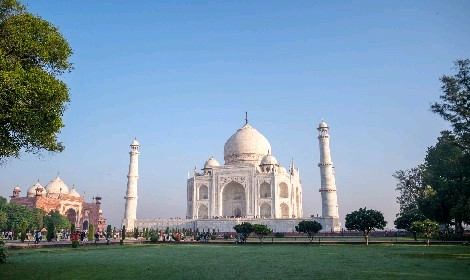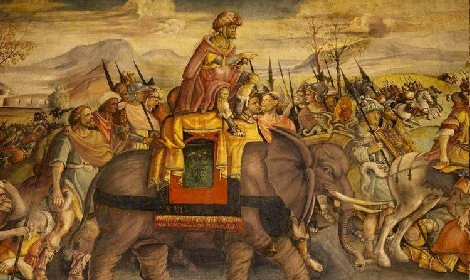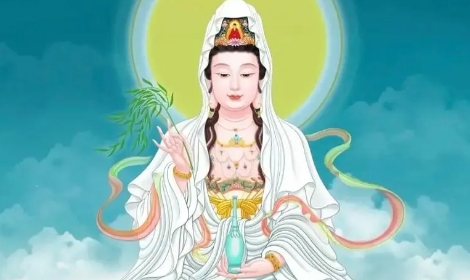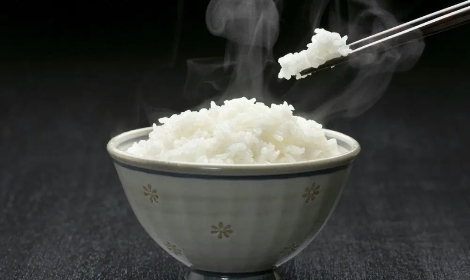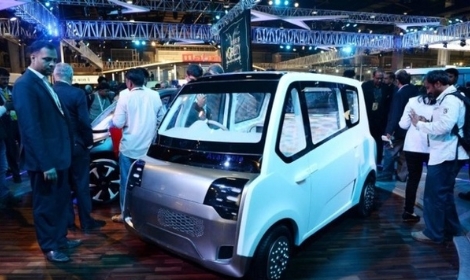印度是否值得游说获得联合国安理会常任理事国席位?印度准备好了吗?
正文翻译
Nitin Mittal
UNSC has become irrelevant now. It is a archaic structure.
A country (especially the size of India) can always have some proxy permanent member veto any resolution against it.
For India, it is only a prestige issue but that also is becoming irrelevant because in the new world order economics play a larger role than politics.
联合国安理会现在已经变得无关紧要了。这是一个过时的结构。 一个国家(尤其是像印度这样的规模)总是可以让某个代理常任理事国否决针对它的任何决议。 对于印度来说,这只是一个威望问题,但这也变得不那么重要了,因为在新的世界秩序中,经济比政治更起决定性的作用。
Ammit Yadaav
Yes India is most deserving and capable country to be a permanent member of United Nation security council.
India has great defence forces, Indian Army is among top five armies of the world.
India believes in peace and strongly condemn and against terrorism.
India is a very progressive state which is developing with a great pace.
The whole world is with India to be a permanent member of United Nation Security Council but because of unreasonable oppose of the few members of Coffee Club like Pakistan and due to the veto power of China India is yet to be permanent member of Security Council.
是的,印度是最值得并且最有能力成为联合国安理会常任理事国的国家。 印度拥有强大的国防力量,印度陆军是世界前五的军队之一。 印度坚信和强烈谴责和反对恐怖主义。 印度是一个发展迅速的进步国家。 整个世界都支持印度成为联合国安全理事会常任理事国,但由于像巴基斯坦这样的咖啡俱乐部的少数成员的不合理反对,以及中国的否决权,印度尚未成为安理会的常任理事国。
UNSC has become irrelevant now. It is a archaic structure.
A country (especially the size of India) can always have some proxy permanent member veto any resolution against it.
For India, it is only a prestige issue but that also is becoming irrelevant because in the new world order economics play a larger role than politics.
联合国安理会现在已经变得无关紧要了。这是一个过时的结构。 一个国家(尤其是像印度这样的规模)总是可以让某个代理常任理事国否决针对它的任何决议。 对于印度来说,这只是一个威望问题,但这也变得不那么重要了,因为在新的世界秩序中,经济比政治更起决定性的作用。
Ammit Yadaav
Yes India is most deserving and capable country to be a permanent member of United Nation security council.
India has great defence forces, Indian Army is among top five armies of the world.
India believes in peace and strongly condemn and against terrorism.
India is a very progressive state which is developing with a great pace.
The whole world is with India to be a permanent member of United Nation Security Council but because of unreasonable oppose of the few members of Coffee Club like Pakistan and due to the veto power of China India is yet to be permanent member of Security Council.
是的,印度是最值得并且最有能力成为联合国安理会常任理事国的国家。 印度拥有强大的国防力量,印度陆军是世界前五的军队之一。 印度坚信和强烈谴责和反对恐怖主义。 印度是一个发展迅速的进步国家。 整个世界都支持印度成为联合国安全理事会常任理事国,但由于像巴基斯坦这样的咖啡俱乐部的少数成员的不合理反对,以及中国的否决权,印度尚未成为安理会的常任理事国。
评论翻译
Anonymous
My Indian friends
Develop India make its military strong by using home made technologies
Then we would’t require VETO shit
UNSC is a shitty organization made by worlds powerful military for their own goodwill, if we would have our army strong then we could have easily dictate our terms, we are not allowed to do nuclear test while US and Russia have more than 5000 warheads, they want poor country to be poor and make them self rich by selling their old weapons.
我的印度朋友们 发展印度,利用自制技术使其军事实力强大 那么我们就不需要否决权了 联合国安理会是由世界上强大的军事力量为了自身利益而建立的一个糟糕的组织,如果我们的军队强大了,我们就能轻松地主导我们的条件,他们不允许我们进行核试验,而美国和俄罗斯却拥有5000多枚核弹头,他们希望穷国保持贫困,通过出售他们的旧武器来使自己变得富有。
I suggest people look at Monika Kothari's and William Petroff's answers in the thread I'm quoting.
Rishav Mishra's answer to Why shouldn't India get a permanent seat in the UN Security Council?
This answer is just an opinion, and I'd love some enlightening comments on it.
我建议人们看一下我引用的帖子中的Monika Kothari和William Petroff的回答。 里沙夫·米什拉的答案为什么印度不应该成为联合国安理会常任理事国? 这个答案只是一个观点,我很乐意听到一些启发性的评论。
Although I really like Monika Kothari's answer, I agree with William Petroff's answer more. It's a Heart V Brain thing here. I think this question is answered really well, and most of the points have been well covered.
I don't think the permanent membership of the UNSC should be a priority for India, given the current geo-political scenario of the world. Yes, it gives India a greater say in world affairs and is an acknowledgement by the world of her rising power. But does India really need it?
尽管我真的很喜欢Monika Kothari的答案,但我更同意William Petroff的答案。这是一个心与脑的问题。我认为这个问题被回答得非常好,大部分观点都被很好地涵盖了。 我不认为成为联合国安理会的常任理事国应该是印度的首要任务,考虑到当前世界地缘政治形势。是的,这给予了印度在世界事务中更大的发言权,并且是世界对其崛起的承认。但是印度真的需要吗?
IMHO, the reputation and acknowledgement should come first, and then things like permanent membership of the council will follow. India needs to work on her infrastructure, education and the quality of life of her people first. Even work on high-tech industries like Space, Defense and high-quality manufacturing needs to be a priority.
The adulation and recognition will come as a result of this, not vice versa.
在我看来,声望和承认应该首先到来,然后才是类似安理会常任理事国的事务。印度首先需要致力于发展基础设施、教育和人民的生活质量。甚至工作于太空、国防和高质量制造等高科技行业也需要优先考虑。 崇拜和认可将作为这些努力的结果而来,而不是相反。
Perhaps India must canvass for greater clout in organizations like IMF and the World Bank, which are currently completely dominated by Europeans and Americans respectively since their inception.
Historically, Indians in general are really interested in power positions like a permanent seat on the UNSC and greater say in organizations like ASEAN. This is a vestige of Nehru's legacy, when he did everything he could to make India have a more prominent position in the world, so that he'd be regarded as an Internationalist, in the same breath as Churchill or Roosevelt. One example is being a much-publicized founder of the Non-Aligned Movement, which turned out to be an ineffective organization of mostly failed states. The media, too, does a bad job of reflecting the ground realities.
也许印度必须争取在国际货币基金组织和世界银行等组织中拥有更大的影响力,这些组织自成立以来就完全被欧洲人和美国人所主导。 从历史上看,印度人普遍对像成为联合国安理会常任理事国和在东盟等组织中拥有更大发言权这样的权力地位很感兴趣。这是尼赫鲁遗产的一种残留,当时他竭尽全力使印度在世界上拥有更突出的地位,以便他被视为国际主义者,与丘吉尔或罗斯福一样。一个例子是作为一个备受瞩目的不结盟运动的创始人,这个组织在很大程度上是由大多数失败国家组成的无效组织。媒体在反映现实情况方面也做得很糟糕。

Remember, diplomatically, India is generally well liked by most members of the UNSC/UNGA and it's unlikely that any resolution will be passed which will affect it adversely. It's relations with important partners like the USA, Russia, Europe and other developing countries are at an all-time high, and India is generally looked up as a model of a successful developing country. I'm sorry to say that India shouldn't strive for more influence, it should focus on more tangible things like the ones I've listed above; the influence will come as a result of this.
请记住,在外交上,印度在联合国安理会/大会的大多数成员中通常受到良好的喜爱,不太可能通过任何可能对其不利的决议。印度与美国、俄罗斯、欧洲和其他发展中国家等重要伙伴的关系达到了历史最高水平,印度通常被视为成功发展中国家的典范。很抱歉要说,印度不应该努力争取更多影响力,而应该专注于更切实可行的事情,比如我上面列出的那些;影响力将随之而来。
I'm sorry if this sounded like a rant. It's one thing to strive for greater recognition, another to prioritize things incorrectly and be bothered about things which look impossible in the near future.
我很抱歉如果这听起来像是一次牢骚。争取更大的认可是一回事,优先考虑错误的事情并为看起来在不久的将来都不可能实现的事情而烦恼则是另一回事。
I know that certain parts of the world and certain sections of the population are under-represented in the UNSC, and it needs to be reformed. I think all the permanent members of the UNSC acknowledge that fact. But I'm afraid it'll just be lip-service as far as getting down to brass tacks and implementing these changes are concerned. If more countries are given the veto power and made permanent, it'll lead to a more protracted UNSC and make decision-making even slower. The existing permanent members would not want that and unfortunately, will selfishly guard their membership.
我知道世界的某些地区和某些人群在联合国安理会中被低估,并且需要进行改革。我认为所有联合国安理会的常任成员都承认这一事实。但我担心在真正着手落实这些变革方面,他们只会说些空话。如果更多的国家被赋予否决权并成为常任理事国,将导致联合国安理会变得更加拖延,决策制定甚至会更加缓慢。现有的常任成员不希望这样,不幸的是,他们会自私地捍卫自己的成员资格。
It's safe to say that Germany is considered far more influential than France, even though France is a permanent member of the council. This is the situation India should strive to be in.
可以肯定的是,德国被认为比法国更有影响力,即使法国是理事会的常任成员。这是印度应该争取的情况。
India is a shining example of a democracy working, defying all odds, and we have enough reasons to feel proud about it. I personally don't give a tinker's cuss if it's a permanent member or not. I'd rather we focus our diplomatic energies on making new friends and opening new trade routes, or even focus on core technological/development sectors. That'll benefit India far more than striving for and wasting such a lot of energy on something it is unlikely to get in the forseeable future.
印度是民主制度运作的光辉典范,打破了所有困难,我们有足够的理由为此感到自豪。我个人不在乎它是否是常任理事国。我宁愿我们将外交精力集中在结交新朋友、开辟新贸易路线,甚至专注于核心技术/发展领域。这将对印度造成更大的好处,而不是为了一些在可预见的未来可能无法获得的东西而浪费大量精力。
As Harish so succintly put it, no need to lose sleep over it. I'd venture to add that India shouldn't even spend a lot of its waking hours over it. ;)
正如Harish所言,不需要为此失眠。我敢说,印度甚至不应该花费大量的清醒时间在此上面。 ;)
Harish Aditham
I think you are majorly agreeing with my answer in this answer (I am confused as to how you can at the same time agree with others answers like Amar Prabhu's here, going by your own answer :P), but I am just not comfortable with the idea that India should become an "advanced" country along Western lines to try for a Security Council seat. We represent 1/6th of humanity, and besides, what is wrong with a "poor", albeit influential country being on the Security Council?
我认为你在这个答案中基本上是同意我的看法的(我很困惑,你怎么可能同时同意其他人的答案,比如阿马尔·普拉布在这里,根据你自己的答案:P),但我只是不太舒服,认为印度应该按照西方的方式成为一个“先进”的国家来争取一个安理会席位。我们代表了人类六分之一的数量,此外,一个“贫穷”的,尽管有影响力的国家成为安理会的成员有什么问题呢?
I don't think the Indian establishment was after the Security Council seat previously for PR reasons. It was not a "heart thing", it was grounded in policy. They have later come to realize the effort is not worth the returns given all the various extrapersonal factors I have outlined in my answer, and thus as I say, if it happens naturally with minimum Indian effort it's a good thing, otherwise, no need to lose sleep over it. :)
我不认为印度过去追求安理会席位是出于公关原因。这不是一件“心血来潮”的事,而是建立在政策基础上的。他们后来意识到,考虑到我在答案中概述的各种额外个人因素,付出的努力不值得回报,因此,正如我所说,如果它自然而然地发生,并且印度付出最少的努力,这是件好事,否则,不需要为此失眠。 :)
Amar Prabhu
I honestly always believed that the UNSCPM is ouf bounds and all the press is just blowing smoke :) But 5 people holding placards in the UN building and making some noise?? It is definitely ok, I dont mind that.
老实说,我一直认为联合国安全理事会的席位是超出范围的,所有的新闻都只是在吹烟雾 :) 但是在联合国大楼里有5个人举着标语,大声疾呼??那绝对没问题,我不介意。
Amar Prabhu
I disagree - as I said earlier, it is very tiny chance that we get a UNSCPM seat - but the effort is peanuts compared to the expected benefits. We should a actively pursue it. A non-veto seat is itself a huge +. If you see the history of UN - related lobbying and power plays, it is very helpful to be in the big boy club. Earning respect in diplomatic circles is a white elephant. Any true diplomat would tell you that it is beyond playing good cop bad cop.
我不同意 - 正如我之前所说的,印度获得联合国安全理事会席位的机会微乎其微,但与预期的收益相比,努力微不足道。我们应该积极追求它。一个非否决权席位本身就是一个巨大的优势。如果你看看联合国的历史 - 相关的游说和权力斗争,加入大男孩俱乐部是非常有帮助的。在外交圈里赢得尊重是一头白象。任何真正的外交官都会告诉你,这超出了好警察坏警察的范畴。
Rishav Mishra
Yes, I have heard this argument coming from people who advocate India's candidacy seriously.
I have done a lot of research on this, and even took a course in university relating to this. Ultimately, I wasn't too convinced about the perceived benefits and whether it should be India's priority at this point in time, given the chances of india actually making it. I respect your opinion, however.
是的,我听到过这种论点,来自那些认真支持印度候选人的人。 我对此进行了大量研究,甚至在大学里修过与此相关的课程。最终,我对所谓的好处以及印度在此时是否应该把这当作优先事项,考虑到印度实际上有可能成功的机会,不是很确信。然而,我尊重你的意见。
Amar Prabhu
The UNSC Permanent Membership was a historic accident and a remnant of the WW2 era. It was formed by the Allies. China was a new kid on the block at the time and got in because of Truman. The geopolitical issues and veto powers dictate that it is in the interest of the permanent members not to expand the UNSC-PM, so it will continue to be so.
联合国安全理事会的永久性成员是历史的意外和二战时代的残留物。它是由盟国组成的。中国当时是一个新生儿,并且之所以进入,是因为杜鲁门。地缘政治问题和否决权力使得对永久性成员扩展联合国安全理事会不符合其利益,因此它将继续保持不变。
Lobbying, rhetoric and politics about India being the largest democracy, developing nation etc has nothing to do with eligibility, acceptance or the issues related to UNSC-PM.
So is it worth lobbying? Yes. It is good press. Is it going to produce results? Highly doubt it.
游说、雄辩和关于印度是最大的民主国家、发展中国家等的政治活动与联合国安全理事会永久性成员资格、接受或与联合国安全理事会永久性成员相关的问题无关。 所以,值得游说吗?是的。这是好的宣传。会产生结果吗?极其怀疑。
Harish Aditham
tl;dr: The UN Security Council seat is a red herring or sorts. Given to us we should be happy, but if not, there is no need to lose sleep over it. Our diplomats understand this, that is why there hasn't been any chorus for it recently, or any pressure on visiting dignitaries to reiterate their support for our candidacy. Instead it is better we continue to engage everybody to aid in our hopefully inexorable rise on the world stage.
总之,联合国安全理事会席位有点像一个红鲱鱼。如果给了我们,我们应该高兴,但如果没有,就没必要为此失眠。我们的外交官了解这一点,这就是为什么最近没有为此高唱赞歌,或者对访问的要人施加压力,要求他们再次重申对我们候选人的支持。相反,最好是我们继续与所有人合作,帮助我们在世界舞台上的不断崛起。
This was one of my projects in b-school! It is a complex question which can be broadly addressed looking at 3 things with no lofty notions, no self-aggrandizement, no celebrations, pure realpolitik:
First Issue: The Nature of the 'Permanent membership"
Will we be given a "veto" power? If so how will that be helpful to India? If not is being a permanent member without a "veto" useful?
Before answering this, let us look at veto usage by the P5 till date:
这是我在商学院的一个项目!这是一个复杂的问题,可以从三个方面广泛地探讨,没有崇高的观念,没有自我夸耀,没有庆祝,纯粹的现实政治:
第一个问题:永久成员的性质
我们会被给予“否决权”吗?如果是的话,那对印度有什么帮助?如果不是,成为一个没有“否决权”的永久性成员有用吗?
在回答这个问题之前,让我们来看看迄今为止五常使用否决权

Only a minority of vetoes have been cast in cases where vital international security issues were at stake. 59 vetoes have been cast to block admission of member states. Additionally, 43 vetoes have been used to block nominees for Secretary General, although these vetoes were cast during closed sessions of the Council and are not included in the table above. Limitation of veto use to Chapter VII (threats to international peace and security), as many members propose, would be a long step towards total veto abolition.
在国际安全问题至关重要时,否决权的使用只占少数。有59次否决是为了阻止成员国加入。此外,有43次否决是用于阻止秘书长的候选人,尽管这些否决是在理事会闭门会议上作出的,并未包括在上表中。许多成员提议将否决权限制在第七章(针对国际和平与安全的威胁),这将是完全废除否决权的长足一步。
Where will India use this? In international disputes, matters which need resolution. How many times will a country's case suffering ethnic strife be brought to the UNSC? And how many times will India find itself having interests in the matter to turn the country to its own economic advantage? China is already seeing a backlash from African countries for her aggressive diplomacy of the kind Dr. Balaji Viswanathan (பாலாஜி விஸ்வநாதன்) notes. (1) India has a softer and arguably better way of doing such things.
印度将在哪里使用这一权利?在国际争端中,需要解决的问题上。一个国家的案例遭受民族纷争会被提交到联合国安理会多少次?印度会发现自己在这个问题上有利益,以将该国转变为自己的经济优势吗?中国已经因其类似于Dr. Balaji Viswanathan(பாலாஜி விஸ்வநாதன்)所指的侵略性外交而在非洲国家中看到了反弹。印度有一种更柔和、更有说服力的做事方式。
Secondly, given the current trend in the UNSC, it has been Russia/China on one side, and the NATO partners on the other. India has not just cordial relationships with all these nations, but it has "strategic partnerships" with all of them, including China! And even while doing so, India has been able to maintain her NAM - inspired strategic autonomy without angering any or all of the above. In the event of India being compelled to side with a bloc as a permanent member, her relations with the other bloc will automatically see a downturn.
其次,考虑到联合国安理会目前的趋势,一方是俄罗斯/中国,另一方是北约伙伴。印度不仅与所有这些国家保持友好关系,而且与所有这些国家都有“战略伙伴关系”,包括中国!即使在这样做的同时,印度仍能保持她的南南合作——启发式的战略自治,而不会惹恼任何一个或所有上述国家。如果印度被迫与一个集团站在一边作为常任理事国,在这种情况下,她与其他集团的关系将自然会恶化。
It is noteworthy to mention here, that India has one of the worst records of voting with the US (we mostly have voted against them) among all countries. On the other hand, China and India have increasingly converging interests, be it in reform of financial institutions like IMF/World Bank, countering climate "reform " forced by developed countries, common trade goals in Doha talks etc. Outside of the Asia Pacific theatre, India and China have very closely converging interests. (2)
值得一提的是,印度在与美国的投票中表现出了糟糕的记录(我们大多数时候都反对他们),在所有国家中居首位。另一方面,中国和印度的利益越来越趋同,无论是在改革国际金融机构如IMF/世界银行、对抗被发达国家强制实施的气候“改革”,还是在多哈谈判中的共同贸易目标等方面。在亚太地区之外,印度和中国的利益非常紧密地趋同。
Juxtapose this scenario with current Indian diplomacy, where we get away with almost everything. We test Agni 5 days after N. Korea's satellite launch, (both being non-signatories to NPT), we get nary a word of censure. We develop MIRVS, go for triads, and expand our naval presence, build ports and acquire air bases all around Asia. There is nary an eyebrow raised. No one dares to interfere in the Kashmir issue. If there is a conflict with China, most would side with us. In the event of us being in the UNSC, when we have had to side with bloc or the other, we cannot be automatically sure of the other's support should the need arise.
In essence, we are good at what we do. Why change that happy status quo and introduce new problems?
将这种情景与当前的印度外交政策相对比,在那里我们几乎可以为所欲为。我们在朝鲜发射卫星后5天测试“烈火5”(两者都是《不扩散核武器条约》非签署国),却没有遭到谴责。我们开发多弹头导弹系统,进行三位一体核打击,并扩大我们的海军存在,建设港口并获取亚洲各地的空军基地。没有人会对克什米尔问题进行干预。如果与中国发生冲突,大多数人会支持我们。如果我们在联合国安理会需要支持其中一个集团,我们不能确定在需要时其他集团会自动支持我们。
实质上,我们擅长我们所做的事情。为什么要改变这种愉快的现状并引入新的问题呢?
My Indian friends
Develop India make its military strong by using home made technologies
Then we would’t require VETO shit
UNSC is a shitty organization made by worlds powerful military for their own goodwill, if we would have our army strong then we could have easily dictate our terms, we are not allowed to do nuclear test while US and Russia have more than 5000 warheads, they want poor country to be poor and make them self rich by selling their old weapons.
我的印度朋友们 发展印度,利用自制技术使其军事实力强大 那么我们就不需要否决权了 联合国安理会是由世界上强大的军事力量为了自身利益而建立的一个糟糕的组织,如果我们的军队强大了,我们就能轻松地主导我们的条件,他们不允许我们进行核试验,而美国和俄罗斯却拥有5000多枚核弹头,他们希望穷国保持贫困,通过出售他们的旧武器来使自己变得富有。
I suggest people look at Monika Kothari's and William Petroff's answers in the thread I'm quoting.
Rishav Mishra's answer to Why shouldn't India get a permanent seat in the UN Security Council?
This answer is just an opinion, and I'd love some enlightening comments on it.
我建议人们看一下我引用的帖子中的Monika Kothari和William Petroff的回答。 里沙夫·米什拉的答案为什么印度不应该成为联合国安理会常任理事国? 这个答案只是一个观点,我很乐意听到一些启发性的评论。
Although I really like Monika Kothari's answer, I agree with William Petroff's answer more. It's a Heart V Brain thing here. I think this question is answered really well, and most of the points have been well covered.
I don't think the permanent membership of the UNSC should be a priority for India, given the current geo-political scenario of the world. Yes, it gives India a greater say in world affairs and is an acknowledgement by the world of her rising power. But does India really need it?
尽管我真的很喜欢Monika Kothari的答案,但我更同意William Petroff的答案。这是一个心与脑的问题。我认为这个问题被回答得非常好,大部分观点都被很好地涵盖了。 我不认为成为联合国安理会的常任理事国应该是印度的首要任务,考虑到当前世界地缘政治形势。是的,这给予了印度在世界事务中更大的发言权,并且是世界对其崛起的承认。但是印度真的需要吗?
IMHO, the reputation and acknowledgement should come first, and then things like permanent membership of the council will follow. India needs to work on her infrastructure, education and the quality of life of her people first. Even work on high-tech industries like Space, Defense and high-quality manufacturing needs to be a priority.
The adulation and recognition will come as a result of this, not vice versa.
在我看来,声望和承认应该首先到来,然后才是类似安理会常任理事国的事务。印度首先需要致力于发展基础设施、教育和人民的生活质量。甚至工作于太空、国防和高质量制造等高科技行业也需要优先考虑。 崇拜和认可将作为这些努力的结果而来,而不是相反。
Perhaps India must canvass for greater clout in organizations like IMF and the World Bank, which are currently completely dominated by Europeans and Americans respectively since their inception.
Historically, Indians in general are really interested in power positions like a permanent seat on the UNSC and greater say in organizations like ASEAN. This is a vestige of Nehru's legacy, when he did everything he could to make India have a more prominent position in the world, so that he'd be regarded as an Internationalist, in the same breath as Churchill or Roosevelt. One example is being a much-publicized founder of the Non-Aligned Movement, which turned out to be an ineffective organization of mostly failed states. The media, too, does a bad job of reflecting the ground realities.
也许印度必须争取在国际货币基金组织和世界银行等组织中拥有更大的影响力,这些组织自成立以来就完全被欧洲人和美国人所主导。 从历史上看,印度人普遍对像成为联合国安理会常任理事国和在东盟等组织中拥有更大发言权这样的权力地位很感兴趣。这是尼赫鲁遗产的一种残留,当时他竭尽全力使印度在世界上拥有更突出的地位,以便他被视为国际主义者,与丘吉尔或罗斯福一样。一个例子是作为一个备受瞩目的不结盟运动的创始人,这个组织在很大程度上是由大多数失败国家组成的无效组织。媒体在反映现实情况方面也做得很糟糕。

Remember, diplomatically, India is generally well liked by most members of the UNSC/UNGA and it's unlikely that any resolution will be passed which will affect it adversely. It's relations with important partners like the USA, Russia, Europe and other developing countries are at an all-time high, and India is generally looked up as a model of a successful developing country. I'm sorry to say that India shouldn't strive for more influence, it should focus on more tangible things like the ones I've listed above; the influence will come as a result of this.
请记住,在外交上,印度在联合国安理会/大会的大多数成员中通常受到良好的喜爱,不太可能通过任何可能对其不利的决议。印度与美国、俄罗斯、欧洲和其他发展中国家等重要伙伴的关系达到了历史最高水平,印度通常被视为成功发展中国家的典范。很抱歉要说,印度不应该努力争取更多影响力,而应该专注于更切实可行的事情,比如我上面列出的那些;影响力将随之而来。
I'm sorry if this sounded like a rant. It's one thing to strive for greater recognition, another to prioritize things incorrectly and be bothered about things which look impossible in the near future.
我很抱歉如果这听起来像是一次牢骚。争取更大的认可是一回事,优先考虑错误的事情并为看起来在不久的将来都不可能实现的事情而烦恼则是另一回事。
I know that certain parts of the world and certain sections of the population are under-represented in the UNSC, and it needs to be reformed. I think all the permanent members of the UNSC acknowledge that fact. But I'm afraid it'll just be lip-service as far as getting down to brass tacks and implementing these changes are concerned. If more countries are given the veto power and made permanent, it'll lead to a more protracted UNSC and make decision-making even slower. The existing permanent members would not want that and unfortunately, will selfishly guard their membership.
我知道世界的某些地区和某些人群在联合国安理会中被低估,并且需要进行改革。我认为所有联合国安理会的常任成员都承认这一事实。但我担心在真正着手落实这些变革方面,他们只会说些空话。如果更多的国家被赋予否决权并成为常任理事国,将导致联合国安理会变得更加拖延,决策制定甚至会更加缓慢。现有的常任成员不希望这样,不幸的是,他们会自私地捍卫自己的成员资格。
It's safe to say that Germany is considered far more influential than France, even though France is a permanent member of the council. This is the situation India should strive to be in.
可以肯定的是,德国被认为比法国更有影响力,即使法国是理事会的常任成员。这是印度应该争取的情况。
India is a shining example of a democracy working, defying all odds, and we have enough reasons to feel proud about it. I personally don't give a tinker's cuss if it's a permanent member or not. I'd rather we focus our diplomatic energies on making new friends and opening new trade routes, or even focus on core technological/development sectors. That'll benefit India far more than striving for and wasting such a lot of energy on something it is unlikely to get in the forseeable future.
印度是民主制度运作的光辉典范,打破了所有困难,我们有足够的理由为此感到自豪。我个人不在乎它是否是常任理事国。我宁愿我们将外交精力集中在结交新朋友、开辟新贸易路线,甚至专注于核心技术/发展领域。这将对印度造成更大的好处,而不是为了一些在可预见的未来可能无法获得的东西而浪费大量精力。
As Harish so succintly put it, no need to lose sleep over it. I'd venture to add that India shouldn't even spend a lot of its waking hours over it. ;)
正如Harish所言,不需要为此失眠。我敢说,印度甚至不应该花费大量的清醒时间在此上面。 ;)
Harish Aditham
I think you are majorly agreeing with my answer in this answer (I am confused as to how you can at the same time agree with others answers like Amar Prabhu's here, going by your own answer :P), but I am just not comfortable with the idea that India should become an "advanced" country along Western lines to try for a Security Council seat. We represent 1/6th of humanity, and besides, what is wrong with a "poor", albeit influential country being on the Security Council?
我认为你在这个答案中基本上是同意我的看法的(我很困惑,你怎么可能同时同意其他人的答案,比如阿马尔·普拉布在这里,根据你自己的答案:P),但我只是不太舒服,认为印度应该按照西方的方式成为一个“先进”的国家来争取一个安理会席位。我们代表了人类六分之一的数量,此外,一个“贫穷”的,尽管有影响力的国家成为安理会的成员有什么问题呢?
I don't think the Indian establishment was after the Security Council seat previously for PR reasons. It was not a "heart thing", it was grounded in policy. They have later come to realize the effort is not worth the returns given all the various extrapersonal factors I have outlined in my answer, and thus as I say, if it happens naturally with minimum Indian effort it's a good thing, otherwise, no need to lose sleep over it. :)
我不认为印度过去追求安理会席位是出于公关原因。这不是一件“心血来潮”的事,而是建立在政策基础上的。他们后来意识到,考虑到我在答案中概述的各种额外个人因素,付出的努力不值得回报,因此,正如我所说,如果它自然而然地发生,并且印度付出最少的努力,这是件好事,否则,不需要为此失眠。 :)
Amar Prabhu
I honestly always believed that the UNSCPM is ouf bounds and all the press is just blowing smoke :) But 5 people holding placards in the UN building and making some noise?? It is definitely ok, I dont mind that.
老实说,我一直认为联合国安全理事会的席位是超出范围的,所有的新闻都只是在吹烟雾 :) 但是在联合国大楼里有5个人举着标语,大声疾呼??那绝对没问题,我不介意。
Amar Prabhu
I disagree - as I said earlier, it is very tiny chance that we get a UNSCPM seat - but the effort is peanuts compared to the expected benefits. We should a actively pursue it. A non-veto seat is itself a huge +. If you see the history of UN - related lobbying and power plays, it is very helpful to be in the big boy club. Earning respect in diplomatic circles is a white elephant. Any true diplomat would tell you that it is beyond playing good cop bad cop.
我不同意 - 正如我之前所说的,印度获得联合国安全理事会席位的机会微乎其微,但与预期的收益相比,努力微不足道。我们应该积极追求它。一个非否决权席位本身就是一个巨大的优势。如果你看看联合国的历史 - 相关的游说和权力斗争,加入大男孩俱乐部是非常有帮助的。在外交圈里赢得尊重是一头白象。任何真正的外交官都会告诉你,这超出了好警察坏警察的范畴。
Rishav Mishra
Yes, I have heard this argument coming from people who advocate India's candidacy seriously.
I have done a lot of research on this, and even took a course in university relating to this. Ultimately, I wasn't too convinced about the perceived benefits and whether it should be India's priority at this point in time, given the chances of india actually making it. I respect your opinion, however.
是的,我听到过这种论点,来自那些认真支持印度候选人的人。 我对此进行了大量研究,甚至在大学里修过与此相关的课程。最终,我对所谓的好处以及印度在此时是否应该把这当作优先事项,考虑到印度实际上有可能成功的机会,不是很确信。然而,我尊重你的意见。
Amar Prabhu
The UNSC Permanent Membership was a historic accident and a remnant of the WW2 era. It was formed by the Allies. China was a new kid on the block at the time and got in because of Truman. The geopolitical issues and veto powers dictate that it is in the interest of the permanent members not to expand the UNSC-PM, so it will continue to be so.
联合国安全理事会的永久性成员是历史的意外和二战时代的残留物。它是由盟国组成的。中国当时是一个新生儿,并且之所以进入,是因为杜鲁门。地缘政治问题和否决权力使得对永久性成员扩展联合国安全理事会不符合其利益,因此它将继续保持不变。
Lobbying, rhetoric and politics about India being the largest democracy, developing nation etc has nothing to do with eligibility, acceptance or the issues related to UNSC-PM.
So is it worth lobbying? Yes. It is good press. Is it going to produce results? Highly doubt it.
游说、雄辩和关于印度是最大的民主国家、发展中国家等的政治活动与联合国安全理事会永久性成员资格、接受或与联合国安全理事会永久性成员相关的问题无关。 所以,值得游说吗?是的。这是好的宣传。会产生结果吗?极其怀疑。
Harish Aditham
tl;dr: The UN Security Council seat is a red herring or sorts. Given to us we should be happy, but if not, there is no need to lose sleep over it. Our diplomats understand this, that is why there hasn't been any chorus for it recently, or any pressure on visiting dignitaries to reiterate their support for our candidacy. Instead it is better we continue to engage everybody to aid in our hopefully inexorable rise on the world stage.
总之,联合国安全理事会席位有点像一个红鲱鱼。如果给了我们,我们应该高兴,但如果没有,就没必要为此失眠。我们的外交官了解这一点,这就是为什么最近没有为此高唱赞歌,或者对访问的要人施加压力,要求他们再次重申对我们候选人的支持。相反,最好是我们继续与所有人合作,帮助我们在世界舞台上的不断崛起。
This was one of my projects in b-school! It is a complex question which can be broadly addressed looking at 3 things with no lofty notions, no self-aggrandizement, no celebrations, pure realpolitik:
First Issue: The Nature of the 'Permanent membership"
Will we be given a "veto" power? If so how will that be helpful to India? If not is being a permanent member without a "veto" useful?
Before answering this, let us look at veto usage by the P5 till date:
这是我在商学院的一个项目!这是一个复杂的问题,可以从三个方面广泛地探讨,没有崇高的观念,没有自我夸耀,没有庆祝,纯粹的现实政治:
第一个问题:永久成员的性质
我们会被给予“否决权”吗?如果是的话,那对印度有什么帮助?如果不是,成为一个没有“否决权”的永久性成员有用吗?
在回答这个问题之前,让我们来看看迄今为止五常使用否决权

Only a minority of vetoes have been cast in cases where vital international security issues were at stake. 59 vetoes have been cast to block admission of member states. Additionally, 43 vetoes have been used to block nominees for Secretary General, although these vetoes were cast during closed sessions of the Council and are not included in the table above. Limitation of veto use to Chapter VII (threats to international peace and security), as many members propose, would be a long step towards total veto abolition.
在国际安全问题至关重要时,否决权的使用只占少数。有59次否决是为了阻止成员国加入。此外,有43次否决是用于阻止秘书长的候选人,尽管这些否决是在理事会闭门会议上作出的,并未包括在上表中。许多成员提议将否决权限制在第七章(针对国际和平与安全的威胁),这将是完全废除否决权的长足一步。
Where will India use this? In international disputes, matters which need resolution. How many times will a country's case suffering ethnic strife be brought to the UNSC? And how many times will India find itself having interests in the matter to turn the country to its own economic advantage? China is already seeing a backlash from African countries for her aggressive diplomacy of the kind Dr. Balaji Viswanathan (பாலாஜி விஸ்வநாதன்) notes. (1) India has a softer and arguably better way of doing such things.
印度将在哪里使用这一权利?在国际争端中,需要解决的问题上。一个国家的案例遭受民族纷争会被提交到联合国安理会多少次?印度会发现自己在这个问题上有利益,以将该国转变为自己的经济优势吗?中国已经因其类似于Dr. Balaji Viswanathan(பாலாஜி விஸ்வநாதன்)所指的侵略性外交而在非洲国家中看到了反弹。印度有一种更柔和、更有说服力的做事方式。
Secondly, given the current trend in the UNSC, it has been Russia/China on one side, and the NATO partners on the other. India has not just cordial relationships with all these nations, but it has "strategic partnerships" with all of them, including China! And even while doing so, India has been able to maintain her NAM - inspired strategic autonomy without angering any or all of the above. In the event of India being compelled to side with a bloc as a permanent member, her relations with the other bloc will automatically see a downturn.
其次,考虑到联合国安理会目前的趋势,一方是俄罗斯/中国,另一方是北约伙伴。印度不仅与所有这些国家保持友好关系,而且与所有这些国家都有“战略伙伴关系”,包括中国!即使在这样做的同时,印度仍能保持她的南南合作——启发式的战略自治,而不会惹恼任何一个或所有上述国家。如果印度被迫与一个集团站在一边作为常任理事国,在这种情况下,她与其他集团的关系将自然会恶化。
It is noteworthy to mention here, that India has one of the worst records of voting with the US (we mostly have voted against them) among all countries. On the other hand, China and India have increasingly converging interests, be it in reform of financial institutions like IMF/World Bank, countering climate "reform " forced by developed countries, common trade goals in Doha talks etc. Outside of the Asia Pacific theatre, India and China have very closely converging interests. (2)
值得一提的是,印度在与美国的投票中表现出了糟糕的记录(我们大多数时候都反对他们),在所有国家中居首位。另一方面,中国和印度的利益越来越趋同,无论是在改革国际金融机构如IMF/世界银行、对抗被发达国家强制实施的气候“改革”,还是在多哈谈判中的共同贸易目标等方面。在亚太地区之外,印度和中国的利益非常紧密地趋同。
Juxtapose this scenario with current Indian diplomacy, where we get away with almost everything. We test Agni 5 days after N. Korea's satellite launch, (both being non-signatories to NPT), we get nary a word of censure. We develop MIRVS, go for triads, and expand our naval presence, build ports and acquire air bases all around Asia. There is nary an eyebrow raised. No one dares to interfere in the Kashmir issue. If there is a conflict with China, most would side with us. In the event of us being in the UNSC, when we have had to side with bloc or the other, we cannot be automatically sure of the other's support should the need arise.
In essence, we are good at what we do. Why change that happy status quo and introduce new problems?
将这种情景与当前的印度外交政策相对比,在那里我们几乎可以为所欲为。我们在朝鲜发射卫星后5天测试“烈火5”(两者都是《不扩散核武器条约》非签署国),却没有遭到谴责。我们开发多弹头导弹系统,进行三位一体核打击,并扩大我们的海军存在,建设港口并获取亚洲各地的空军基地。没有人会对克什米尔问题进行干预。如果与中国发生冲突,大多数人会支持我们。如果我们在联合国安理会需要支持其中一个集团,我们不能确定在需要时其他集团会自动支持我们。
实质上,我们擅长我们所做的事情。为什么要改变这种愉快的现状并引入新的问题呢?


